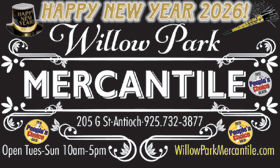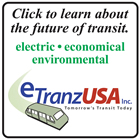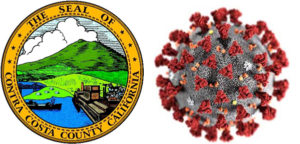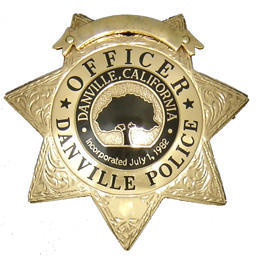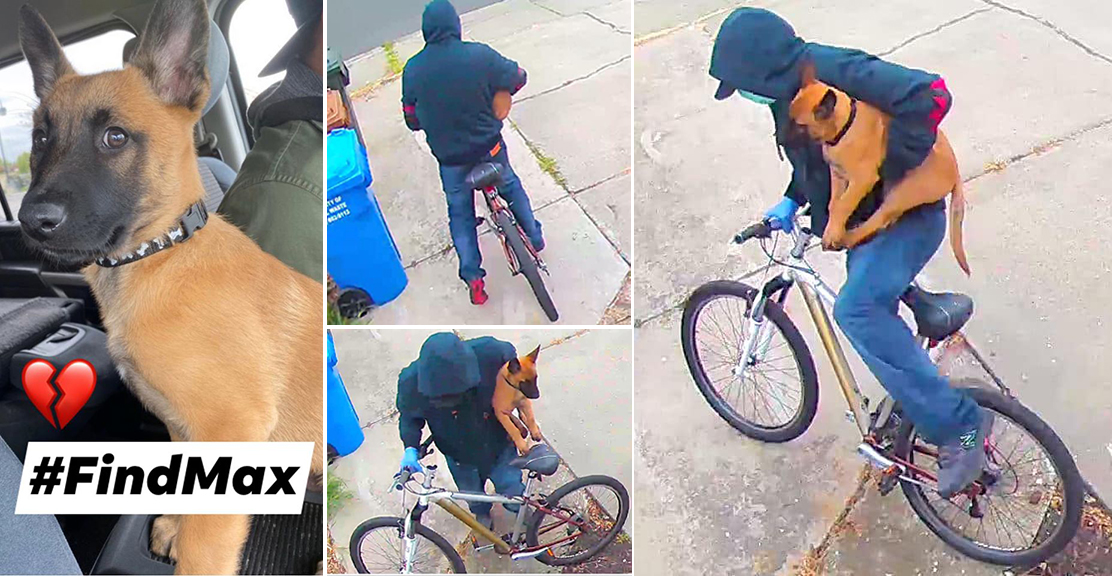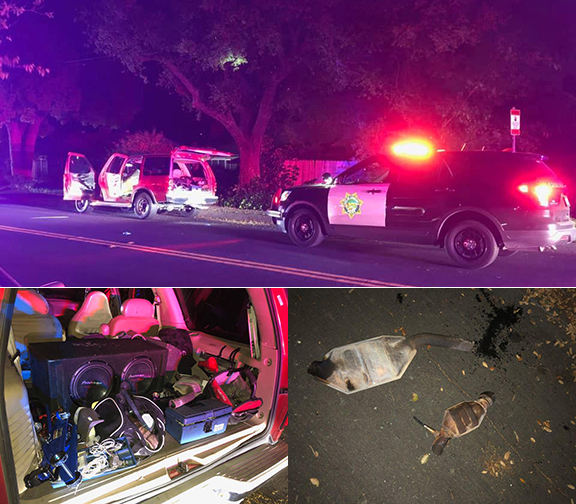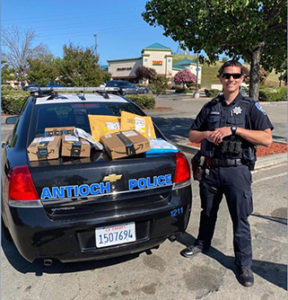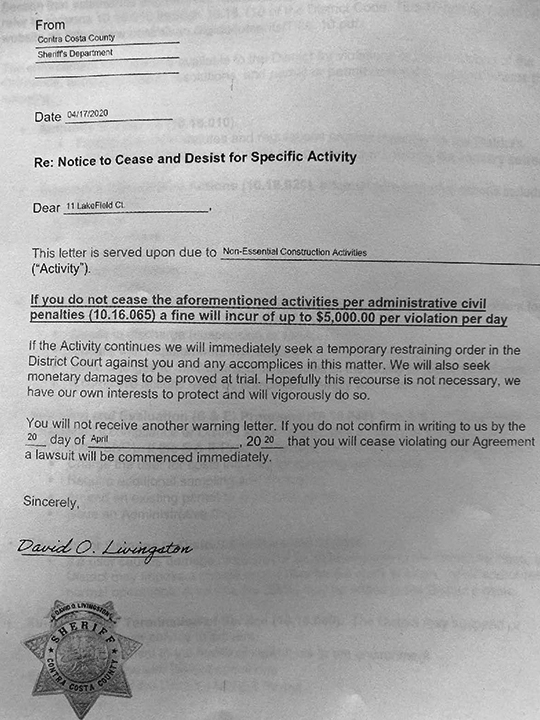Supervisors ban evictions, rent increases during COVID-19 shelter in place with 6-month grace period
No late fees for 120 days
Residential and commercial renters will get some rental and eviction relief during the COVID-19 pandemic after the Contra Costa County Board of Supervisors voted 5-0 to approve an ordinance containing a 180-day grace period, two months more than what supervisors initially had in mind, during a special meeting on Tuesday. (See entire ordinance, here).
By liberally extending the grace period an extra two months, supervisors are handing over to thousands of renters in the county more financial and housing relief during this stressful period when COVID-19 has decimated their financial livelihood. In March, the county’s unemployment rate was 4 percent and April’s unemployment rate will very likely rise sharply when it is release later on.
Instead of inserting a 120-day grace period that other counties like Santa Clara County have inserted in its COVID-19 rent control and eviction moratoria ordinance, Contra Costa County supervisors at the request of District 1 Supervisor John Gioia of Richmond convinced other supervisors that a longer grace period is needed given the uncertainty of the duration of the medical and economic repercussions from the current local and state-mandated stay-at-home orders.
Gioia said he favored the more expansive 180-day grace period because the ordinance, as it was proposed to supervisors, does not protect all tenants whether they are delinquent or current in their rent.
“You have to be up to date on rent in order to be protected by the ordinance presented by counsel,” said Gioia. “It’s very unfortunate that the governor’s order requires this. Tenants must be current on rent to qualify for the grace period.”
Supervisors listened to 45 emailed comments from county residents, most of whom were in support of at least a 120-day grace period, little knowing that Gioia would propose a more expansive 180-day grace period.
“We’re dealing with uncertain times,” said District 3 Supervisor Diane Burgis of Brentwood. “We’re dealing with people who have not paid rent. People who have lost jobs because businesses have shut down.”
District 4 Supervisor Karen Mitchoff of Pleasant Hill preferred to retain the ordinance’s 120-day grace period clause saying it was sufficient for renters, but eventually agreed to the 180-day grace period for rent and eviction moratoria purposes until May 25 when supervisors plan to revisit the issue.
Other features of the ordinance taken mainly from the Santa Clara County ordinance include countywide, no-fault evictions, definition of owner, attorney fees, and no late fees.
Public Health Ad Hoc Committee Created
While COVID-19 health measures will remain in place for the foreseeable future, Board Chair Andersen proposed the creation of an ad hoc Public Health Committee that will weekly with county health department officials.
The committee that will consist of Burgis and Board Chair and District 2 Supervisor Candace Andersen of Danville. The committee’s key role is to be advisory to supervisors and Contra Costa County Health Officer Dr. Christopher Farnitano who will retain ultimate authority on health issues.
“This is not meant to replace the health officer’s directive,” said Supervisor Mitchoff. “There’s been some concern about communication. People are getting frustrated.”
Read MoreCharged with looting due to coronavirus state of emergency
Four teenagers are in custody following a Friday afternoon robbery of a Danville CVS store. Danville Police Chief Allan Shields said the incident occurred at approximately 4:53 p.m. on April 17, 2020, when police received a call from an employee of the CVS in the 600 block of San Ramon Boulevard reporting a robbery. The caller stated that two suspects entered the pharmacy, simulated a firearm, and demanded access to the narcotics safe. When employees stated they did not have access, the suspects fled.
Dublin PD had reported a similar incident two hours earlier and provided a description of the car. A deputy from the Contra Costa County Office of the Sheriff located the vehicle on northbound I-680 near Treat Boulevard and initiated a traffic stop. Two of the suspects were identified by the victim of the Danville robbery and two were identified from the Dublin incident. All four have been booked into juvenile hall on charges of robbery, conspiracy to commit robbery, and looting. Looting is a unique charge that is applied when a person enters a building to commit any theft during state of emergency.
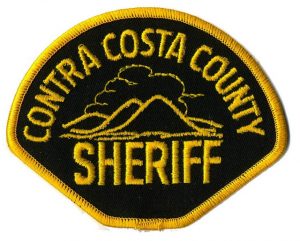 Chief Shields said he was pleased they were able to locate and detain the suspects quickly and praised the efforts of his officers along with officers from Dublin Police Department and the deputies from the Contra Costa County Office of the Sheriff.
Chief Shields said he was pleased they were able to locate and detain the suspects quickly and praised the efforts of his officers along with officers from Dublin Police Department and the deputies from the Contra Costa County Office of the Sheriff.
“This was an excellent example of how police work together to keep the community safe by capturing criminals,” said Shields. “During this ongoing crisis our officers are busy, but rest assured we will continue to aggressively arrest and seek prosecution for those wishing to do harm in our Town.”
For more information, contact Lt Jason Ingrassia at (925) 314-3700 or jingrassia@danville.ca.gov.
Read More
https://www.facebook.com/ConcordPolice/videos/543299893283830/?t=12
By Concord Police Department
PLEASE HELP US FIND THIS ADORABLE PUPPY!
Warning, you’re about to get really mad!
This is Max. He is an 11-week-old Malinois puppy. Today, around 10:00 am, Max was stolen from the garage of his owners’ house on Montgomery Ave.
The suspect is described as an adult male, wearing a dark hooded sweatshirt (red patches on elbows), dark ball cap, blue jeans, dark shoes, and blue rubber gloves. He carried Max away from the area riding a gold and white bicycle.
If you see Max, know his whereabouts, or recognize this thief, please call Concord Dispatch at (925) 671-3333 and refer to case #20-4193.
Max’s family misses him so much. ~454
Monday, 04-20-20 UPDATE: Here are some clearer still images of the DOGNAPPER. We’re hoping something helps someone recognize this man. If so, please contact Concord PD’s Financial Crimes Unit at (925) 671-3030 or if you wish to remain anonymous you can call our tip line at (925) 603-5836. ~454
#findmax #dognapper #pleasehelp #concordpd
Read MoreBy Concord Police Department
Catalytic converters thefts have become all too common because of their value and lack of identifying markings. So, when we’re able to catch one of these rampant thieves in action, we want to make sure to let you know!
Earlier this morning, Monday, April 20, 2020 around 3:00 am, employees from Wave Broadband found three men on their property trying to saw off a catalytic converter from one of their vehicles. The trio fled the scene in an SUV, but not before the driver almost hit one of the witnesses (fortunately, he was able to quickly jump aside).
The employees got in their vehicle and were able to follow the suspects from a safe distance while providing Dispatch with their updated location. Officers quickly responded, conducted an enforcement stop, and apprehended the suspects. A search of the SUV yielded burglary tools and two catalytic converters.
All three suspects were placed under arrest. The driver was also sent to County Jail for attempted assault with a deadly weapon. ~454/493
Read MoreBy Concord Police Department
In case you weren’t aware, social distancing is not an excuse to run from the police!
On Saturday, April 18, 2020 several callers reported a black SUV driving recklessly while exiting southbound HWY 242 at Solano Way and Grant St. The left front tire completely came off of its wheel, but that didn’t stop the suspect from continuing to drive while dwindling down the rim.
Once the SUV reached the city streets of Concord it came to its resting point on the center median. The suspect frantically exited, but not before grabbing a backpack and a few boxes of tools. He then ran into a nearby neighborhood where several callers witnessed him jumping fences into various backyards.
At this point, our Dispatch received information from Martinez PD that the SUV was involved in a hit-and-run collision in their city after the driver stole tools from the Martinez Home Depot. Minutes later, Concord Dispatch got a call from a Concord resident wanting to report their SUV stolen. Turns out, the license plate number provided by the registered owner matched the one that the suspect used in his crime spree.
While Concord Officers were searching the area, another caller reported seeing the suspect jumping fences. Officers arrived at the address within seconds and found the suspect, who continued on his path of poor decisions, and ran. Officers gave chase and after a brief foot pursuit were able to apprehend the suspect without incident. Additionally, the suspect attempted to discard a backpack he was carrying while running, which was discovered to contain the stolen tools from Martinez.
The suspect in this case was identified as 24-year-old Martinez resident, Antonio Neely. A records check revealed he is on felony probation for robbery and evading police. For his actions, Concord PD placed Neely under arrest for a surfeit of criminal violations and provided him with a ride to County Jail.
A big thanks to all of the amazing witnesses who called and helped us apprehend Mr. Neely. As we repeatedly say, we couldn’t do this without you! ~454
#stolenvehicle #criminal #teamwork #concordpd #incustody
Read More
Adam Ortega with machete on Brentwood residents’ porch, Sat. morning April 11, 2020. Sheriff Livingston’s badge. Herald file photos.
By Jimmy Lee, Director of Public Affairs, Contra Costa County Office of the Sheriff
35-year-old Adam Ortega, a transient in Brentwood, was booked into the Martinez Detention Facility at about 10 AM on Friday, April 17, 2020. He was booked for the offenses requested by the Brentwood police, possession of a dangerous weapon and probation violation. (See related articles, here, here and here)
Because of the Judicial Council of California’s mandatory emergency rule of zero bail for misdemeanors and non-violent/non-serious felonies, both of the alleged offenses committed by Ortega were zero bail. He was later cite released. (See related article)
“I like most California Sheriffs believe the Judicial Council’s decision to implement $0 bail for a wide range of criminal offenses was irresponsible, unnecessary and an overreaction,” said Contra Costa County Sheriff David Livingston. “A state-wide solution to local issues is almost never good policy – that is certainly the case here. People who commit offenses against others should be held accountable, COVID-19 or not.”
Read More
Amazon van theft suspects with their car and packages inside on Saturday, April 18, 2020. Photos by APD.
By Antioch Police Department
Be a good neighbor that you can always count on.
You wanna know what makes East county strong? Read below and I’ll tell you…
Just before 2 pm on Saturday, April 18, 2020, APD was notified that an Amazon delivery van had been stolen on West 9th and B Streets. Our awesome dispatchers put out a quick alert to all surrounding police departments to be-on-the-lookout. A short time later, an observant Pittsburg Police Department, Pittsburg, CA Police Officer found the van and began recovering it. While doing so, an equally observant Pittsburg resident approached the officer and said they saw some suspicious characters removing packages from the van, placing them into a silver Mitsubishi with Colorado plates.
The witness took a picture of the plate and gave it to the officer, which was relayed back to us. At about 3:30 pm, Officer Angelini (pictured upper left fitting the first crook with new bracelets) spotted said Mitsubishi on the south side of our fine city and halted this criminal spree. Officers found several stolen packages in the back of the vehicle and will be working with Amazon to get them back to their intended destinations.
Note to criminals: Stealing vehicles and packages are not essential activities. Your failure to #StayAtHome and your decision to mess with Antioch and Pittsburg resulted in an express trip to the County Motel (AKA jail).
This incident is the classic example of “See Something, Say Something! This was a collaborative effort between two cities, two police departments, and a very alert citizen. Please continue to report suspicious incidents to our Dispatch at (925) 778-2441, or 9-1-1 if you think it’s an emergency.
A special thanks to the Pittsburg resident and Pittsburg PD for continuing to show they are a great neighbor!!! #EastCountyStrong #AntiochPD #PittsburgPD
Some of you have asked more about Officer Angelini after his good bust yesterday from the Amazon package theft caper. Here’s a picture of him taking a moment away from his investigation to proudly pose next to his find. Did you know Officer Angelini is originally from Brazil, speaks three languages, loves riding dirt bikes, and (sorry ladies!) is happily married! #OfficerAngelini #DontStealPackages
Read More
Seniors, public invited to listen – must register, first
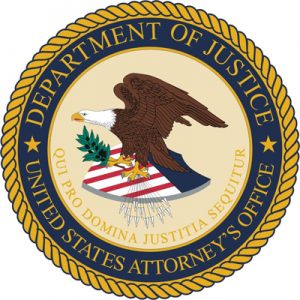 SAN FRANCISCO – Prosecutors from the four United States Attorney’s Offices in California, along with representatives from the FBI, will participate in a telephonic town hall to help California residents identify and avoid fraudulent schemes related to Coronavirus and COVID-19. The event is being coordinated by the American Association of Retired Persons (“AARP”).
SAN FRANCISCO – Prosecutors from the four United States Attorney’s Offices in California, along with representatives from the FBI, will participate in a telephonic town hall to help California residents identify and avoid fraudulent schemes related to Coronavirus and COVID-19. The event is being coordinated by the American Association of Retired Persons (“AARP”).
The telephonic town hall will happen on Monday, April 20 from 10 to 11 a.m. PDT. During the event, a special agent from the FBI and a federal prosecutor will make presentations, and participants from across California will be allowed to ask questions to a panel of Assistant United States Attorneys from the four offices that serve California.
AARP’s Fraud Watch Network is providing the infrastructure for the event. Approximately 100,000 AARP members will receive a phone call Monday morning inviting them to participate in the town hall. Those who wish to receive an invitation may sign up here (https://vekeo.com/aarpcalifornia/).
During the current health crisis, federal investigators and prosecutors continue to fulfill their critical mission of protecting public safety. Federal officials have prioritized the disruption, investigation and prosecution of crimes related to Coronavirus and COVID-19, including fraudulent schemes, unapproved treatments, and scams related to stimulus money. During the town hall, federal officials will discuss the types of schemes currently being seen, along with tips on how to avoid becoming a victim.
Soon after the town hall event, a recording will be available at https://vekeo.com/aarpcalifornia/.
REPORT COVID-19 CRIME. Contact the National Center for Disaster Fraud Hotline: 866-720-5721 or disaster@leo.gov.
Read More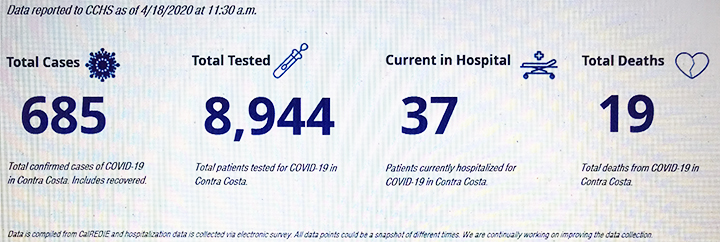
Screenshot of CC Health Services Coronavirus Dashboard.
By Allen Payton
As of Saturday, April 18, 2020 at 11:30 a.m. Contra Costa Health Services (CCHS) is reporting a total of 685 cases of COVID-19/coronavirus, and a total of 19 deaths in the county, three more than yesterday. There are 37 people diagnosed with the virus currently hospitalized.
A total of 8,944 people have been tested for the virus in the county.
The county’s coronavirus dashboard also offers hospital information. It shows the daily Intensive Care Unit Occupancy Rate and Ventilator Utilization for all hospitals in the county.
The largest category of those who have been diagnosed with the virus continue to be people ages 41-60 with 251 cases.
To see the all the statistics provided by CCHS, click here.
Read MoreBy Jimmy Lee, Director of Public Affairs, Contra Costa County Office of the Sheriff
Tuesday, April 21, 2020 UPDATE: Further investigation of this incident by the Danville Police Department has determined that the COVID-19 notice was put on the door by a member of the household as a prank.
ORIGINAL POST: The Contra Costa County Office of the Sheriff would like to call your attention to a phony “cease and desist” letter that appears to have originated from the Sheriff’s Office.
A Danville resident on Lakefield Ct. notified the Danville Police Department that she found the warning letter on her door this morning. The letter is titled, ‘Notice to Cease and Desist for Specific Activity.’ The letter mentioned the reason was ‘non-essential construction activity,’ a reference to activities (or businesses) that are not allowed during the Health Officer order to shelter at home because of COVID-19. The letter included a Sheriff’s Office badge and warned of civil penalties for violations.
The Sheriff’s Office has not issued any such letters. Anyone who receives one should ignore it and notify the Office of the Sheriff at (925) 646-2441.
The Danville Police Department is looking into this fake letter. Any resident who might have received a similar letter or has any information is asked to contact Sergeant S. Stapleton of Danville PD at (925) 314-3700.
Read More
